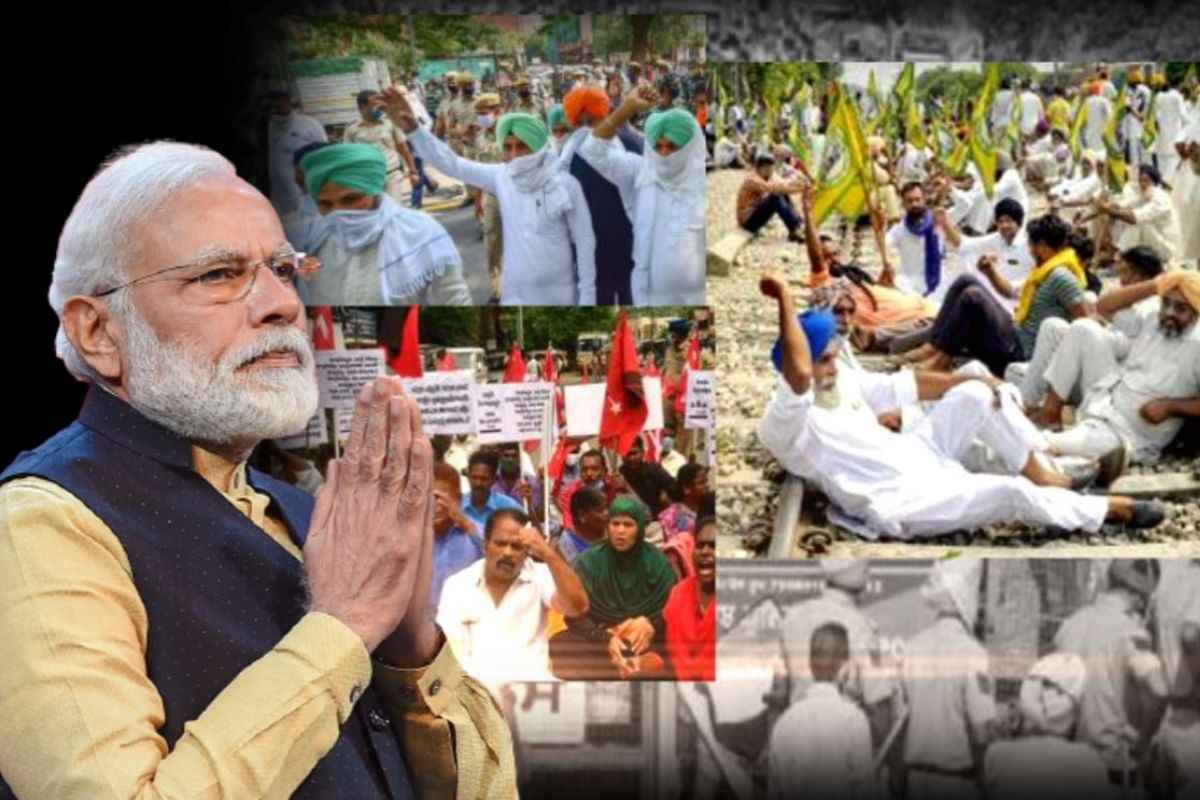Central Government Plans and Decisions on Farmers: Read More The opposition challenge has not been considered the biggest challenge for the Modi government at the Centre. Its policies have created many major problems for the central government. The most prominent of these has been the Modi government’s agricultural policy. This is the reason why even after four years, the government is facing resentment from farmers over the decisions taken with the demand for farmers’ upliftment and progress.
The BJP-led government at the Centre has been facing a lot of criticism regarding its agricultural policies. Farmers have termed these policies as anti-farmer, due to which widespread protests have been taking place since 2020. Punjab, Haryana, Delhi and western Uttar Pradesh have been the focus of this protest. Although farmers are not seen on the roads today, dissatisfaction can be clearly seen in the farming community, especially in states like Punjab and Haryana.
Schemes and decisions on central government for farmers: The second government claims that these farmer-related laws have been framed to modernise the agricultural sector. They claim that these reforms will provide more flexibility and better market access for agriculture and farmers. Despite this, opposition parties and farmers’ unions are sceptical. They are not ready to believe that the government’s action will have any impact on them.
However, it is not that the central government has not taken any steps for the welfare of farmers. After different budgets and farmers’ movements, the central government has taken many important steps to increase agricultural production and double the income of farmers. Tell us point by point
Central Government Schemes and Decisions on Farmers: The government has launched many initiatives to help farmers. One such initiative is a Rs 13,966 crore scheme to boost agricultural productivity and sustainability. This includes investments in technology and data-driven farming practices.
Another major project is the Agricultural Infrastructure Fund, which aims to improve storage facilities and reduce post-harvest losses. The Rs 3,979 crore scheme is part of a broader strategy to expand India’s agricultural sector.
The introduction of digital platforms like Agristack aims to revolutionize the decision-making process in agriculture. By leveraging data and artificial intelligence, these platforms help farmers make informed decisions about crop management and access to markets.
Schemes like PM-Kisan provide direct financial assistance to farmers. With an allocation of Rs 1,115 crore, the initiative aims to ensure the long-term viability of small farmers by providing them with a stable source of income.
Central Government Schemes and Decisions on Farmers: The government is also focusing on education and skill development for farmers. The Rs 2,291 crore initiative aims to improve agricultural education and management practices. These efforts are designed to equip farmers with the necessary knowledge to adapt to changing agricultural needs.
There are also schemes that promote sustainable agricultural practices. For example, the Rs 860 crore initiative focuses on developing high-yielding crop varieties that are resilient to climate change. It aims to increase both the productivity and sustainability of Indian agriculture.
Farmers’ central government schemes and decisions: Despite constant opposition and criticism, the government says its policies are fundamentally in the interest of farmers. It maintains that these reforms will ultimately benefit farmers by providing them with better opportunities and resources.
There is an ongoing debate about whether these policies are actually anti-farmer or not. However, it is clear that both sides have strong opinions about what is best for India’s agricultural future.
For more great news from IBC24, please also follow our Facebook page.
Click here for other great news from IBC24
Follow IBC24 News channel on WhatsApp
Disclaimer:
The information contained in this post is for general information purposes only. We make no representations or warranties of any kind, express or implied, about the completeness, accuracy, reliability, suitability or availability with respect to the website or the information, products, services, or related graphics contained on the post for any purpose.
We respect the intellectual property rights of content creators. If you are the owner of any material featured on our website and have concerns about its use, please contact us. We are committed to addressing any copyright issues promptly and will remove any material within 2 days of receiving a request from the rightful owner.

